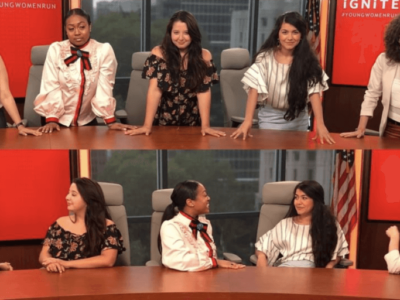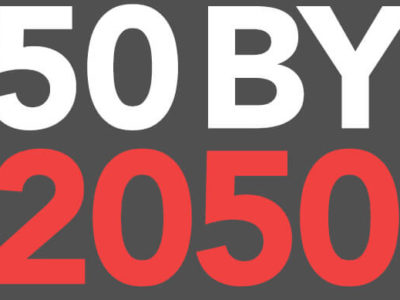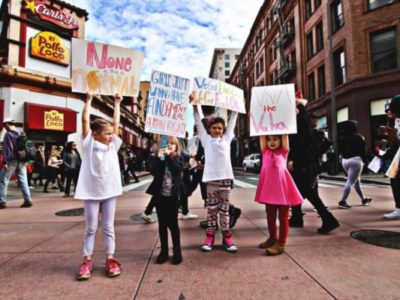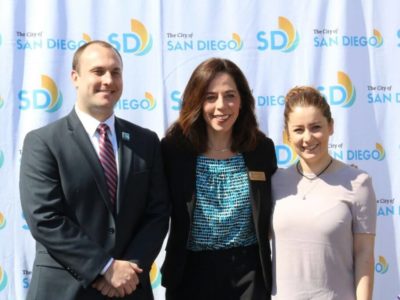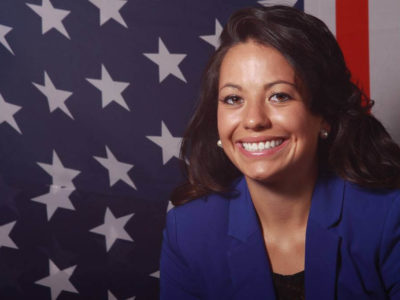Kids dream of becoming a doctor, lawyer, actor or teacher. But politician? It feels like a far-off dream, especially for young women. Not anymore. The 2016 Presidential Election ignited a spark in women both young and old to run for office and change the laws and systems that don’t make sense. And conferences like IGNITE National’s Young Women Run 2018 give young women the tools they need to run for office and win.
On June 25–26, 2018, I attended the Young Women Run conference in Washington, D.C. with my sister Aleena. As soon as I walked in, I knew that I joined a conference that celebrated sisterhood and ambition.

Everyone seemed genuinely excited to meet each other and learn about each other’s political aspirations. IGNITE asked everyone to share their perspectives and goals in front of their peers. We all snapped our fingers in agreement and cheered in support of each other.
Girls from all over the United States (someone even came from Australia) told me how they wanted to become the first Afro-Latina mayor of NYC, or the first Black Muslim president, or the first minority woman to serve on her city’s council. It inspired me to hear what these women want to do in their communities. And they were all college students or recent graduates—all around my age.
I just started getting into politics. I’m amazed by all the things these women have done even before the 2016 election. It made me want to volunteer on local campaigns or attend town halls and local government meetings.
The conference used an app called Whova that gave the contact info of all the attendees, IGNITE employees and panelists like Congresswoman Nanette Diaz Barragán, so you could privately message them or add them on LinkedIn.
It didn’t feel nerve-wracking to go up to the panelists and breakout session leaders. They all chatted with us about shared interests or let us ask our burning questions.
During the LinkedIn session, I asked the leader and LinkedIn’s Senior Legal Policy Enforcement Consultant Nikila Kakarla about putting my journalism articles on my LinkedIn profile. After the session, I went up to her. She pulled up her LinkedIn account on her phone, showing me that the “Accomplishments” section works best. Pro tip from Kakarla: Describing your responsibilities in various jobs is boring. Instead talk about what you’ve learned and enjoyed about those experiences.
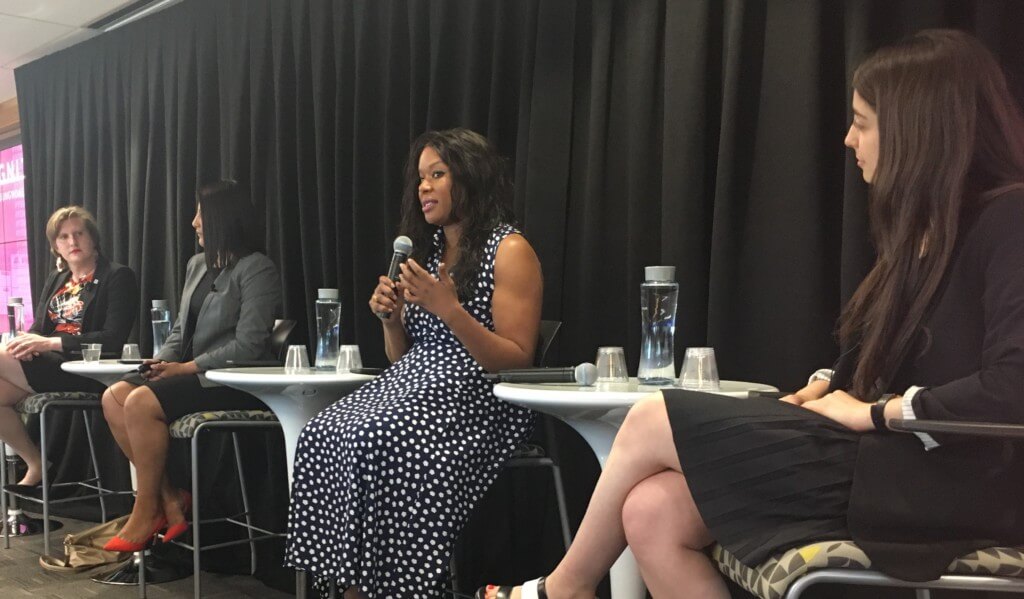
During lunch on the first day, each table hosted a female politician from the D.C.-Maryland-Virginia area. We sat next to women with years of experience in government, excited to share that knowledge with others. While we ate our sandwiches and sipped our sodas, we asked questions about their campaigns, their jobs as politicians and much more.
I sat with Julie Palakovich Carr, a council-member for the city of Rockville, which is 15 minutes from my city. She taught me that being a council-member is a part-time job and going door-to-door works better than making phone calls. Going door-to-door saves money in the long run to allocate fundraising money elsewhere, plus it builds personal relationships with constituents.
We split into different groups and spent the two days rotating around different sessions on topics such as LinkedIn profiles and networking, managing a public politician page on Facebook, and campaign financing and organizing.
In On-Camera Media Training, IGNITE spokeswomen Vanessa Vasquez and Solidarity Strategies’ President Chuck Rocha taught us how to behave and present ourselves on camera.
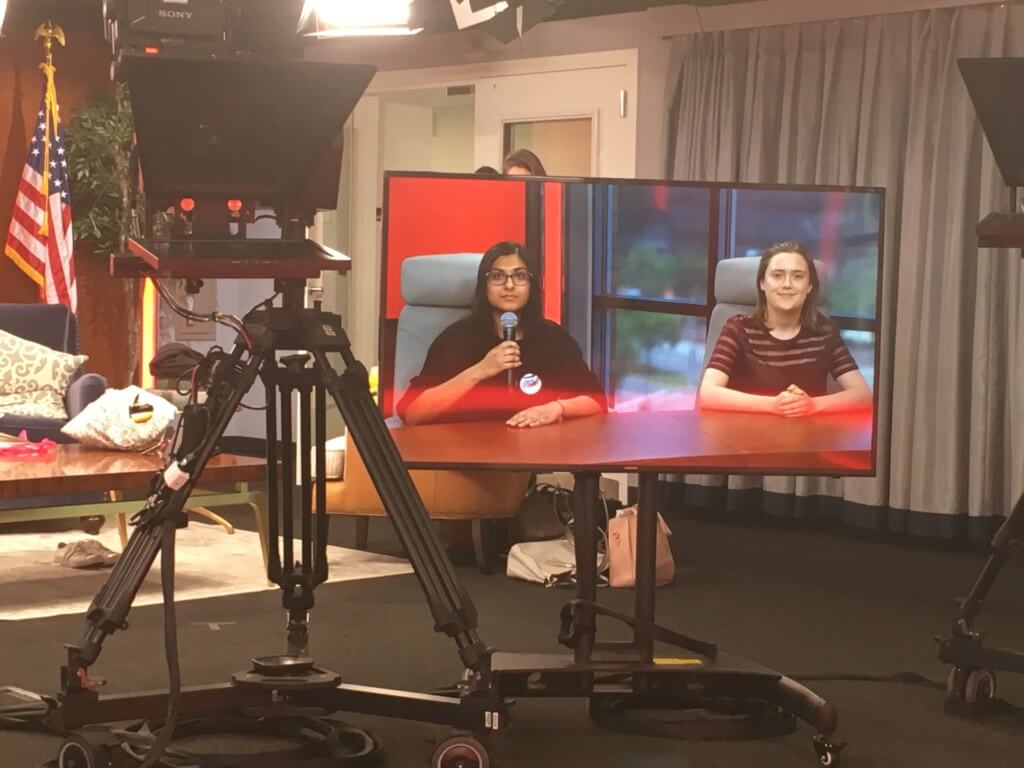
Then we got first-hand experience. They split our session into groups of five. Then we sat at a news anchor desk with a microphone and answered a question on the spot while looking at the camera. Talk about nerve-wracking. I found it super helpful to watch myself on camera. Besides seeing how extremely nervous I looked, I learned that you should always say “thank you” to the newscaster before answering your question.
More on camera pro-tips include:
- Smile at the camera as frequently and naturally as possible
- Don’t hold the microphone extremely close to your lips
- Keep on your hands in the viewer’s eye without making excessive hand gestures.
I loved sharing my own experiences with the other attendees and learning about the political dynamics of different states around the U.S. I sat at one table with my sister, two young women from Texas who live close to the ICE detention centers and a young woman from rural Michigan.
We talked about political engagement (or the lack thereof) in our communities and college campuses, and how we try to solve the issues they face. It felt amazing to join a conference that stressed achieving your ambition and bi-partisan solidarity with women in the political world.
For young women thinking about running for political office, IGNITE’s Young Women Run will truly jumpstart the whole process. You get a chance to network with your peers and professionals who could help you land that dream internship or job. You get really detailed and comprehensive tools and advice that you wouldn’t get anywhere else.
I took away valuable skills that I could apply to any other job or project I embark on in the future. I learned about communicating your passions and beliefs with others. And last, I found that socializing and connecting with others makes networking fun. Walking out of Young Women Run 2018, students felt prepared to start campaigning as soon as the next day.
I still plan to stick to my journalistic aspirations instead of running for office. But Young Women Run 2018 did inspire and encourage me to join other George Washington University students in attendance to start an IGNITE chapter on our campus. By connecting with these young women, I gained the self-confidence to follow my ambitions.

